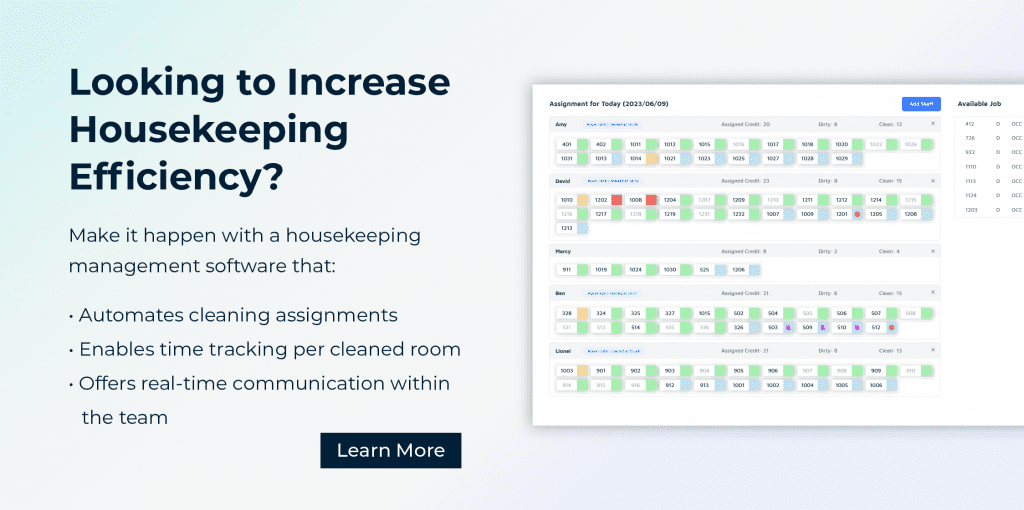
The 5 Technology-Powered Hotel Trends
The hospitality industry has been undergoing a digital transformation for years. This trend has significantly accelerated in recent times. Hotels are increasingly adopting new technologies, such as IT applications and e-commerce solutions, to stay competitive and drive the industry forward.
However, it is not only external factors at play – today’s travellers are highly tech-savvy and well-researched. According to a Google Travel study1, 74 per cent of travellers nowadays plan their trips on the Internet compared to 13 per cent that still uses travel agencies. They also tend to have enhanced expectations regarding their trips and hotel stays.
Hoteliers need to understand these changing traveller trends and guest expectations to improve their services. Fortunately, they are somewhat at a significant advantage since these selfsame technologies help them unlock new insights and opportunities.
How do hotels respond to changing consumer behaviour?
By adopting the right hotel technology, hoteliers can help their guests make seamless bookings and optimise the quality and convenience of their stay. The following are five technology-powered hotel trends to keep an eye on.
- Contactless check-in
Contactless processes are now being used by virtually all industries, from deliveries to shopping. Hotels can incorporate this through their check-in procedure by setting aside a dedicated area in the lobby for self check-in for guests to complete registration, pre-payment authorisation and retrieval of room keys.
According to a study3 by tech solutions provider Oracle, 71 per cent of potential guests are more likely to stay in hotels that offer self-service capabilities. As much as 73 per cent of hoteliers likewise believe that the self-service tech will remain a hospitality trend long past the post-pandemic.
- Cybersecurity
Given today’s emerging digitalisation trend, hotels will leverage more popular technologies like IoT and expand their IT systems to provide a more modern guest experience. As a result, they will generate and handle larger volumes of sensitive and potentially personal data that may attract cybercriminals and other malicious actors.
Without the proper cybersecurity defences, such high-tech hotels will be more vulnerable than ever to cyber threats. Therefore, it is imperative that hotels work with certified hotel solution providers such as Vouch, for their IT systems to prevent such attacks and protect the business’s data, reputation, and customers. It is also essential to conduct cybersecurity awareness training for employees to deter social engineering threats like phishing.
- Big Data
On the topic of leveraging popular technologies, hotels and resorts will eventually rely on Big Data to glean key information like trends in the spending and consumption of guests, their habits, and other behaviours. Big Data is essentially the large volume of data and analytics that businesses like hotels collect through day-to-day operations.
By taking a data-driven approach, hoteliers can make more informed and strategic decisions, develop more targeted marketing campaigns, create relevant customer programmes, and efficiently manage their operations, leading to increased profitability.
- Service automation
Modern travelers crave personalised experiences and hotels are responding by offering guests greater control over their stay. This flexibility might mean allowing guests to request amenities quickly and easily, choose their preferred housekeeping schedule, and access digital information about attractions and hotel services, all at their own time.
Providing this level of customisation can be complex. Many hotels are turning to digital guest platforms to bridge this gap. These platforms empower hotels to deliver exceptional customer experiences while simultaneously boosting their business efficiency.
Consider the SYN Boutique Hotel in Chiang Mai, Thailand, and their innovative Guest Experience Platform powered by Vouch. This platform empowers guests with 24/7 access to hotel services via their mobile phones.
Guests can easily request additional amenities, housekeeping, or even place room service orders directly through the platform, eliminating the need for calls and potential language barriers. The platform automatically routes requests to the appropriate hotel departments, displaying instructions in the staff’s preferred language. This streamlines communication, reduces errors, and speeds up service delivery.
By automating these tasks, the SYN Boutique Hotel frees up valuable staff time. This allows them to focus on personalised guest interactions and take their service to the next level.
Furthermore, guest platforms are also directly connected with Big Data since they can learn more about the guests and gather information over time, which can be used to provide more targeted services and upselling on the platform.
- Sanitisation
Due to changes in the past years, guests have become hyper-aware of cleanliness and prioritise rigorous hygiene standards when choosing accommodations. This shift reflects a growing focus on personal well-being and a desire for safe, sanitary environments. To remain competitive, hotels, resorts, and vacation rentals must demonstrate a clear commitment to implementing and exceeding industry hygiene protocols.
According to Amadeus’ Rethink Travel Global Survey2, contactless and mobile payments (34 per cent) and automated cleaning processes (36 per cent) were ranked the most popular by French travellers among the suggested technology options. In the survey, travellers also got to pick the top five things they would like technology to do for travelling. The two topmost were to reduce queues and congestion in public spaces (38 per cent) and minimise physical or face-to-face contact with others (31 per cent).
Hotels should be led by guest behaviour
As the hotel industry progresses, the majority of new hotel technology will continue to arise from the desire of guests rather than pure innovation. Hence, it is crucial for hotels to listen and take note of travellers’ demands and expectations from the hotel stay and their overall trip. This way, the accelerating need for individually customised hotel guest experience is addressed, albeit through technological means.
Conclusion
Technological advances have sweepingly transformed the hospitality landscape, prompting hoteliers to take note and play by changing traveller demands and expectations. Key players in the industry should remember that this progression is not self-regulating – instead, it is driven by the changing demands and improved expectations of guests. Technology has granted them unbridled freedom and convenience, and it is only natural that they look for it in various aspects of their lives.
As a key player in the hotel industry, you should not rest on your laurels but keep up with the promising trends since your competitors are, too. Vouch aids to redefine the standards for an exemplary guest experience for hotels worldwide. Our Vouch Guest Experience Platform helps elevate customer loyalty and satisfaction to greater heights by providing the tools necessary to follow through with the trends mentioned above. From contactless dining and room requests to contactless check-in for hotels, Vouch delivers a holistic solution covering every digital touchpoint in a guest’s journey. Feel free to visit our website for resources or contact us today to learn more about Vouch.

